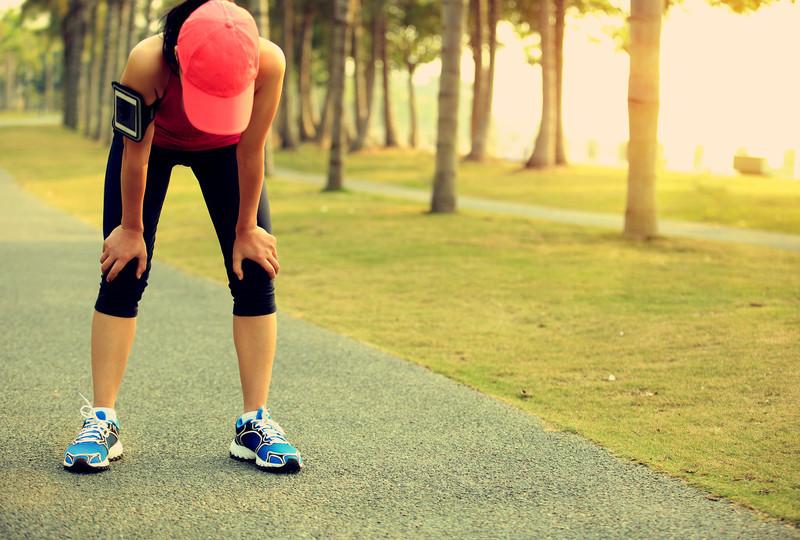You have the best intentions of starting a fresh exercise regime during the warmer months, but you're struggling because of hay fever or allergies that affect your respiratory system and sinuses.
Whenever you go out for a run or an outdoor exercise class, your breathing and cardiovascular performance is interrupted because of nasal congestion, an allergy-induced sinus headache or because you just feel lousy. This can ruin any good workout.
Other culprits
Fortunately, your exercise mission doesn't have to be doomed to failure. In fact, a survey undertaken by the National Pollen and Aerobiology Research Unit in Australia has shown that regular exercise can actually improve the symptoms of those with severe hay fever.
The survey also found that stress can influence the severity of hay fever. Those with high levels of stress who took part in the poll described their symptoms as “debilitating”. Exercise can be a method to reduce stress, give your mood a boost and ease up your symptoms.
According to Sarah King, an accredited exercise physiologist, about 150 minutes of cardiovascular exercise per week can help your symptoms ease up and improve your general wellbeing, although you should be mindful of where you exercise and consider the pollen count in your area.
Outdoor exercise isn't always the culprit. Gyms can also create problems, says Thomas Kallstrom, a registered respiratory therapist and chief operating officer of the American Association for Respiratory Care. High chlorine levels in pools, damp environments and shared exercise mats that trap dander and pollen from outside can also trigger allergy symptoms.
Talk to your doctor if you experience severe symptoms, especially allergy-induced asthma, and be mindful of how and where you exercise.
Listen to your body
You should listen to your body and know when to skip a workout. Many medical experts will go by the “below-the-neck” rule. If any allergy-induced symptoms develop into a chest or respiratory infection, it is advisable that you stop exercising until you are better.
When your symptoms are above your nose and throat, your resting pulse is normal and you have enough energy to exercise, a doctor will tell you to go ahead but to stop if you experience breathing difficulties or an abnormally high heart rate during exercise.
Sometimes simple allergy symptoms can turn into an infection. You might experience a fever, muscle aches and high resting pulse. These are all signs that you shouldn’t be exercising, as it’s your body’s way of fighting an underlying infection. If you suspect that any of your symptoms linked to allergies have now turned into an infection, see your doctor about the best course of treatment.
Should I be exercising?
Not sure if you should be doing that half marathon after a terrible bout of sinusitis or hay fever? A Health24 article gives the following indicators of whether you should be exercising if you are feeling lousy. You can apply these when you suffer from allergy symptoms as well:
Take your resting heartbeat or pulse as soon as you wake up – a normal heart rate for an adult can range between 60 and 100, depending you your height and weight, overall health and fitness levels. Anything higher than normal should be taken as a warning sign.
You should be able to breathe without any difficulty. Don’t exercise if you experience any phlegm or a chesty cough.
Don’t exercise if you feel abnormally tired, feverish or suffer from body aches.
Tips for exercising with allergies
Here are some tips to get the most out of your workout, despite springtime allergies:
Monitor the pollen count in your area by using a weather app.
Change your exercise routine to incorporate workouts either early in the morning or early in the evening when the pollen count is lower.
Apply a barrier cream, such as Vaseline, around your nostrils to “trap” pollen before it gets into your nose.
Change your route to stay away from parks and fields where grass can potentially wreak havoc.
Avoid alcohol the evening before a workout as this can aggravate nasal congestion. Alcohol can also affect the way your histamine levels fight allergies; it is therefore a good idea to ease up on the tipple in general.
Wear sunglasses when you exercise outside to reduce the amount of pollen getting into your eyes.
Eat well – up your intake of antioxidants by eating plenty of fresh fruits and vegetables, and try to eliminate dairy if this aggravates congestion.
If you are prone to allergy-induced asthma, try holding a small amount of water in your mouth as you start working out – this will prevent allergens from getting into your respiratory system straightaway.
By: Marelize Wilke
Fuente: www.health24.com
